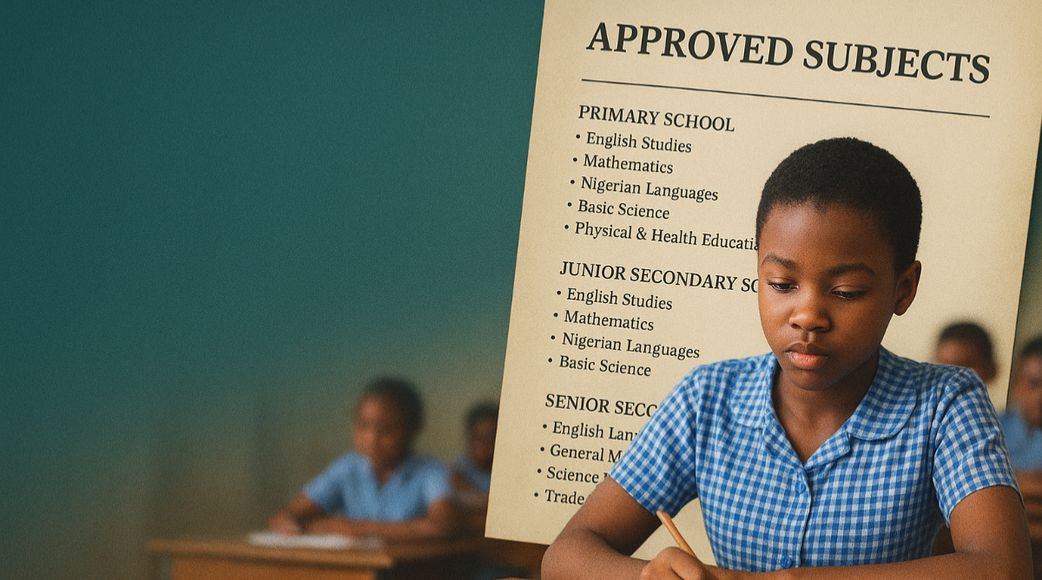The Federal Government of Nigeria has officially released the approved subjects for primary, junior secondary, and senior secondary schools, set to begin with the 2025/2026 academic session.
The announcement by the Nigerian Educational Research and Development Council (NERDC) on September 8, 2025, finally puts to rest the speculation caused by the circulation of fake lists online.
According to NERDC’s Executive Secretary, Professor Salisu Shehu, the revised curriculum is designed to reduce overload, improve relevance, and introduce essential skills such as digital literacy and trade-based learning from the earliest stages. The Council explained that the reforms are part of the National Education Sector Reform Initiatives (NESRI), aimed at making Nigerian students future-ready.
At the primary level, pupils from Primary 1 to 3 will study core areas like English, Mathematics, Nigerian languages, science, history, creative arts, and physical education, while Arabic remains optional. From Primary 4 to 6, the curriculum expands to include digital literacy and pre-vocational studies, with French also introduced as an optional subject.
In junior secondary school, the focus shifts toward deeper science, technology, and cultural learning. Students will continue with the foundational subjects but also begin exploring trade options such as solar photovoltaic installation, fashion design, livestock farming, computer hardware and GSM repairs, and horticulture.
By senior secondary school, the reforms become even more pronounced. Five subjects are compulsory—English Language, Mathematics, Digital Technologies, Citizenship and Heritage Studies, and at least one trade subject—while students may select additional courses in science, humanities, business, and vocational pathways. This ensures that graduates leave school not only with academic knowledge but also with practical and entrepreneurial skills.
Implementation will be phased, beginning with Primary 1, Primary 4, JSS 1, and SS 1 in 2025. This gradual rollout, according to the government, is designed to give schools time to adjust and prepare. Teacher retraining, sensitisation campaigns, and infrastructure development have also been promised to support the reforms.
Still, reactions remain mixed. While education stakeholders acknowledge the need for modernisation, teachers’ unions and some parents argue that the reforms are being rushed and that schools lack the facilities to cope. Analysts insist that the success of the new curriculum will depend on political will, consistent funding, and sustained investment in training and resources.
Despite these concerns, the Federal Government maintains that the new curriculum marks a new chapter for Nigeria’s education system. With its strong emphasis on relevance, digital skills, and trade competence, the reforms aim to produce a generation of students better prepared for the realities of today’s economy.























